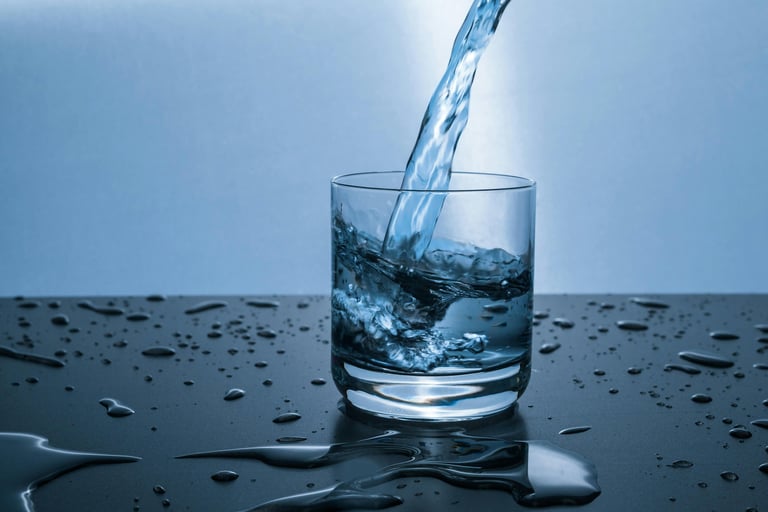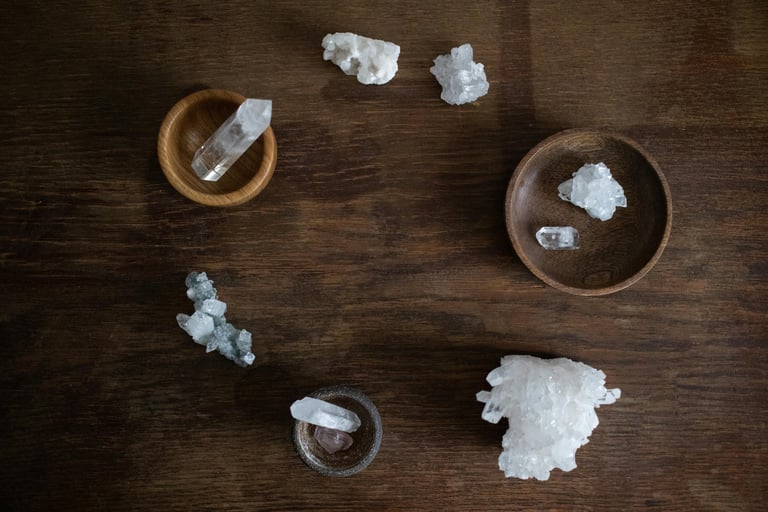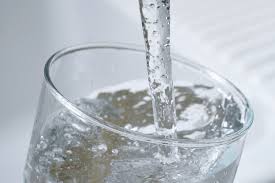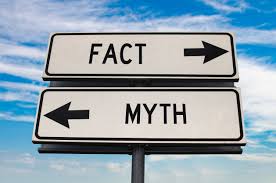The Importance of Mineral-Rich Water for your Family’s Health
Discover why mineral-rich water is essential for your family’s well-being. From strengthening bones and muscles to supporting heart health and immunity, minerals like calcium, magnesium, and potassium play crucial roles in daily health. Learn how choosing natural sources of mineral water can elevate your hydration game and contribute to a healthier lifestyle. Explore the benefits and make informed decisions about the water you drink. Prioritize your family’s health with every sip of mineral-rich water.
5/8/20249 min read
As the name implies, mineral water is a mixture of minerals. We are all aware of the benefits of maintaining hydration, including how it strengthens our immune systems (particularly in light of the current pandemic). However, did you know that a significant portion of the possible health advantages are dependent on the mineral composition of your drinking water? Mineral water is distinct from ordinary water sources including tap water, RO-filtered water, and ordinary bottled water.
Importance Of Water In Daily Life:
The body uses water for various functions, such as eliminating waste, controlling body temperature, carrying nutrients, and aiding in digestion. It makes sense why it's deemed "essential!"
Here are some points describing the importance of water in our daily life:
Severe dehydration is brought on by the body's low water level, and it frequently coexists with kidney failure, seizures, and brain edema.
Water facilitates better oxygen circulation throughout the body.
It is also essential for proper food digestion.
The ocean's water helps to regulate the temperature at night by absorbing solar heat throughout the day.
A vital component of agriculture is water. It is essential for agricultural irrigation.
It is frequently utilized for cooking.
Water is used by humans for many different household tasks, including cleaning and laundry.
Large volumes of water are needed by many companies to process, chill, and dilute their goods.
What Is Mineral-Rich Water?
Mineral Water originates from natural springs—where flowing subterranean water emerges from a surface fissure—mineral water is sometimes referred to as spring water.
Mineral waters were traditionally utilized or drunk directly from their spring sources, in locations like spas, baths, and wells. This practice was known as "taking the waters" or "taking the cure." but these days, it is significantly more typical for mineral water to be provided in bottles straight from the source. Nowadays, it is rare and frequently impossible to travel to the mineral water location for direct access to the water due to exclusive commercial ownership rights. Worldwide, there are more than 4,000 commercial brands of mineral water.
Essential Mineral Found in Mineral Water:
Calcium (Ca2+)
For proper bone development and healthy growth, calcium is necessary at every age
Magnesium (Mg2+):
Since magnesium has been demonstrated to reduce heart disease, it is a crucial component of water.
Sodium (Na2+): Sodium is a two-edged sword in that it is necessary in modest amounts to keep the balance of minerals and water in our bodies.
Fluoride (F-): In certain parts of the world, fluoride is added to water on purpose, while in other parts it is present naturally in the water to lower the risk of tooth decay.
Health Benefits Of Mineral Rich Water:
Underground reservoirs provide a source of mineral water. Mineral water isn't chemically treated like ordinary drinking water is. Benefits of mineral water can include reducing blood pressure, building stronger bones, and more.
Here are some Benefits of Mineral Rich Water:
Regulation of Blood Pressure
Low magnesium levels have been linked to hypertension, congestive heart failure, and disorders causing irregular heartbeats. Thus, magnesium-rich mineral water may help reduce the risk of cardiovascular disease.
Support For Heart Health
It has been demonstrated that drinking mineral water increases levels of good cholesterol and decreases levels of bad cholesterol. Natural mineral water promotes your heart health because high cholesterol is known to raise your risk of heart disease and other connected disorders, so everything will continue to work properly in the long term.
Improves Digestive Health
Your digestive system will thank you for getting adequate magnesium from your mineral water. Water enters the intestines as a result of the increased magnesium intake. This is not only necessary to encourage increased hydration but also increases the frequency of bowel movements and aids in the prevention of constipation.
Promotes Bone Health
The majority of individuals are unaware that calcium is essential for strong bones at every stage of life. Fortunately, mineral water is a good way to get this important mineral. Furthermore, the bicarbonate and magnesium levels in mineral water may provide a long-term benefit to your bone health.
Regulates Blood Circulation
Maintaining optimal health ultimately depends on efficient blood circulation, which can be facilitated by the calcium, magnesium, and potassium present in mineral water. Furthermore, the rate and rhythm of your heartbeat have also been connected to these trace components.
Impact On Children’s Health:
Water is highly vital for children and is necessary for life. A child's body needs a lot of water to be healthy, active, and comfortable. Children who drink water during the day tend to think more clearly, learn more, become more active, and remain happy and healthy. Children require both water and minerals to support their growth as well as to maintain their health and fitness. Did you realize that water makes up approximately 75% of your child's body?
Importance Of Minerals in Growth & Development:
Foods growing in soil or water include minerals, which are an integral part of the human diet. These are chemical elements that are vital to human health, including iron, calcium, magnesium, salt, and phosphorus. Minerals are essential to our bodies for a variety of vital processes, such as controlling our metabolism, preserving the integrity of our bones, and supporting the health of our muscles, nerves, and organs.
Since the human body cannot create minerals on its own, we must get them from the food we eat. Therefore, to make sure that our bodies are functioning at their peak, it's critical that we acquire enough of the appropriate minerals from our diets.
Mineral-Rich Water V/s Distilled or Purified Water:
Distilled Water:
Boiling the water and then allowing it to condense back into a liquid is called distilled water. Given that it is devoid of contaminants like bacteria and poisons, it is frequently utilized in medical settings. These are a few advantages of using distilled water:
Because distilled water is pure, it's an excellent option for people who have allergies or sensitive skin.
Food and drink tastes can be enhanced with the use of distilled water. This is a result of the minerals it lacks that might impart an unpleasant flavour.
Food and beverage shelf lives can be increased with the use of distilled water. This is because it is devoid of the bacteria that leads to food and drink spoilage.
Mineral Rich Water:
Water that has been naturally enhanced with minerals is known as mineral water. These minerals may consist of elements like magnesium and sodium. Mineral water has the following advantages:
Mineral water can assist in replacing fluids and electrolytes lost during physical activity. This is due to the fact that it includes magnesium and salt, both of which are needed for adequate hydration.
Digestion can be enhanced with the use of mineral water. The minerals in mineral water can support the proper function of the digestive system.
Skin can be revitalized and nourished with the aid of mineral water.
Considerations for choosing the right water for your family:
Recognize the different kinds of water:
Make intelligent choices about the kind of water you drink to keep up a healthy lifestyle. Let's first discuss the many types of water sources so that you may make an informed decision.
Tap Water: Tap water is water that is obtained from dams or rivers, purified at a facility, and then piped into your homes. When compared to other types of water, its cost is lower.
Mineral Water: As its name implies, it contains additional minerals, such as calcium and magnesium. Subterranean water sources are the main source of it. Water's inherent mineral content supports a healthier digestive tract and increased immunity.
Bottled water: Reverse osmosis is used to filter packaged drinking water before it is sealed in a bottle or pouch. When you're outdoors, it's a handy way to get water. It is more expensive than the other options, though.
Spring water: Glaciers and springs provide the source of this water. It is pure, devoid of toxins, and loaded with essential minerals. The cost of water is higher than that of bottled water due to its scarcity of natural resources.
Distilled water: Water is turned into a vapour and then back into a liquid state by the distillation process. This procedure removes necessary minerals, thus it's not the best way to guarantee mineral intake.
The significance of the water's pH and mineral content:
Calcium and magnesium are among the minerals that are naturally present in water. Hard water, which has a high mineral content, can make your skin and hair dry and degrade, even if the amount of minerals in the water has no bearing on how safe it is.
Water with a very high mineral concentration, such as sulfur, may appear dark and smell strongly of rotten eggs. Businesses utilize softening chemicals, such as phosphorus, to reduce the high mineral concentrations in hard water.
The acidic and alkaline characteristics of water are determined by its pH level. Most drinkable water has a pH of 6.5 to 7.5, with 7 being considered neutral.
Waters To Avoid:
It is not advisable to drink water from open sources such as ponds, rivers, seas, or oceans. It has a high level of pathogen contamination.
Bottled water produces a significant amount of garbage made of single-use plastic, which is bad for the environment. Additionally, some bottled water has extra sugar and unnecessary calories. Moreover, the cost is higher than that of filtered water.
Common Myths and Misconceptions:
1. Myth: All minerals in water are beneficial for health.
Clarification: While minerals like calcium and magnesium are beneficial, excessive intake of certain minerals, such as sodium, can be detrimental to health, especially for those with specific medical conditions like hypertension.
2. Myth: Purified or distilled water is better because it is devoid of minerals.
Clarification: While purified water has its uses, it lacks essential minerals that are beneficial for health. Mineral-rich water provides necessary nutrients that contribute to overall well-being.
3. Myth: You can get all the necessary minerals from food, so water mineral content doesn’t matter.
Clarification: While a balanced diet is crucial, water contributes significantly to mineral intake, especially for minerals like magnesium and calcium that may be lacking in some diets.
4. Myth: Bottled mineral water is the same as natural spring water.
Clarification: Bottled mineral water may contain added minerals or undergo processing that alters its composition, whereas natural spring water naturally contains minerals from geological formations.
5. Myth: Tap water is as good as bottled mineral water.
Clarification: While tap water is generally safe and regulated, its mineral content can vary widely depending on the source and treatment process. Some tap water may lack beneficial minerals found in natural sources.
6. Myth: Drinking mineral-rich water can lead to kidney stones.
Clarification: Proper hydration with mineral-rich water helps prevent kidney stones by diluting substances that could crystallize in the kidneys. The type and balance of minerals in water play a role, but staying hydrated is key.
7. Myth: Mineral water is only for hydration; it doesn’t offer any health benefits beyond regular water.
Clarification: Mineral-rich water provides essential nutrients that contribute to various bodily functions, including bone health, muscle function, and cardiovascular health, making it more beneficial than plain water in some aspects.
8. Myth: Drinking more mineral-rich water is always better for health.
Clarification: While adequate hydration is essential, excessive intake of minerals through water can sometimes exceed recommended daily allowances, so balance is key to maintaining overall health.
Addressing these myths and misconceptions can help readers make informed decisions about the types of water they consume and understand the role of mineral-rich water in their family’s health.
Conclusion:
In conclusion, the significance of mineral-rich water cannot be overstated when it comes to maintaining optimal health for you and your family. From supporting bone strength and muscle function to regulating blood pressure and boosting immune health, the essential minerals found in natural sources of water play a vital role in our daily well-being.
It’s crucial to prioritize water quality in your household. While there are many options available, choosing mineral-rich water ensures that you're not only hydrating effectively but also benefiting from the natural goodness of minerals that are essential for various bodily functions.
At Vedgama, we understand the importance of providing high-quality water that enhances your health and well-being. Our range of packaged drinking water and natural mineral water is carefully sourced and processed to preserve its mineral content, ensuring you get the best possible hydration experience.
Final Thoughts:
Maintaining a balanced approach to hydration involves making informed choices about the water you consume daily. By opting for Vedgama’s natural mineral water, you’re not just choosing hydration; you’re choosing a healthier lifestyle for yourself and your loved ones.
Experience the difference with Vedgama’s natural mineral water today. Visit our website to explore our products and learn more about how we can help you and your family stay hydrated and healthy. Make the switch to Vedgama and prioritize your health with every sip. Your body deserves the best, choose Vedgama for quality hydration that supports your well-being.














